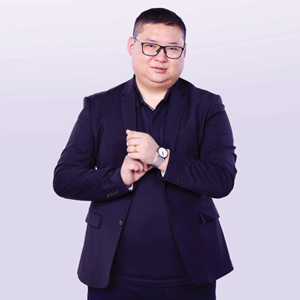
Necessity, the mother of change, has ignited a powerful movement in Asia to address its pressing environmental challenges. While it is true that Asia is currently home to 93 of the 100 most polluted cities and faces significant climate risks, this sobering reality serves as a catalyst for transformation. In order to expedite consumer uptake and achieve climate targets, startups like HATASU are poised to make a difference in the Asian EV market by ensuring accessibility, affordability, and efficiency in their products. Let’s learn more about the brand from Zac Huang, CEO of HATASU.
How is HATASU positioned in the market?
HATASU ebike, is a young yet determined player in the market, founded in November 2022. We strategically position ourselves across six registered Asian countries including the Philippines, Malaysia, Vietnam, Indonesia, China and Thailand. Being in the market for over six months, our primary focus is on developing our business in the Philippines due to the country's potential to lead the EV industry in Southeast Asia.
We have achieved nationwide coverage with over 500 stores in the Philippines within less than a year through our strong partnership with the major local dealers as well as over a thousand HATASU workforce deployed across the country. We have also initiated operations in Malaysia and will soon expand to other registered countries. At HATASU, our objective is to promote a sustainable lifestyle by offering affordable and convenient electric vehicles that cater to the daily transportation needs of diverse consumers.
What approaches do you adopt to integrate R&D, production, sales, and aftersales to successfully run the electric vehicle business globally?
Our approach is comprehensive on a global scale. Our manufacturing team, based in China, produces the necessary parts for our ebikes. However, what sets us apart is our commitment to involve the local team too in the R&D and production stages. We believe that nobody understands the demand and road conditions of a place better than its own people. Hence, upon the arrival of the parts, the local team takes charge of assembling the units and conducting rigorous quality checks to ensure that all HATASU ebikes are safe and secure.
For sales, we rely on trusted local business partners to expand our nationwide coverage, making it convenient for customers to purchase our products regardless of their location. We are also developing our local aftersales team,
providing them with the necessary knowledge and training to address customer aftersales requests promptly. Through our 360-degree approach, spanning from pre-sales to aftersales, we have successfully increased our market share in the Philippines, establishing ourselves as one of the leading ebike brands locally.
How does your comprehensive range of products contribute to the different industrial applications?
Through our continuous dedication to understanding customer needs, we strive to deliver purposeful and innovative products. We prioritize being alongside our customers throughout their journey as we establish our brand's presence and influence in the market. Extensive market research helps us understand their needs, enabling us to produce purposeful, high-quality products. Different categories of EVs address specific demands: two-wheelers for young professionals on the go and three-wheelers for family use and supporting small-medium enterprises.
Three-wheelers also offer easier navigation, while two-wheelers are more compact to use. Our current line-up includes KUMI and NERO (two-wheelers ebikes) and MAKO (three-wheeler ebikes). KUMI features a Wide Saddle-type Driver Seat and Hydraulic Shock System. NERO has a Digital Display and Speed Selector. MAKO accommodates 2-3 people with ample storage options and a Brake Lock System. We strive to deliver purposeful and innovative products by understanding customer needs. We are also excited to announce the upcoming release of the upgraded three-wheeler, MAKO 2, offering purposeful upgrades to ensure the best power, comfort, and design riding experience to all.
Hatasu offers comfortable two-wheeler and practical three-wheeler electric bikes (KUMI, NERO, & MAKO) for an affordable and efficient transportation experience
What are the major factors that differentiate your company from the other players in this segment?
Being the new player has never stopped our brand to push beyond the boundaries of simply selling our ebikes. Besides having competitive products, we are actively promoting the brand through different marketing efforts. We are also fostering a community of HATASU ebike owners that we call our ‘Hatasukis’ to create a space for our customers to share their experiences with our products. We also ensure that we are accessible nationwide by building strong relationships with our external partners and providing intensive training to our salesforce. The combined efforts from product, people, and service are what sets HATASU apart from our competitors and we are committed to continue to grow the brand into the leading electric vehicle brand in all the regions possible.
How has been the journey so far? What is the future plan for growth?
Within just over six months, we have achieved nationwide coverage with over 500 authorized stores selling HATASU ebikes. We have formed strong partnerships with over 30 organizations and actively engaged with customers through events and caravans across the country. Currently, we have over 10,000 users in the Philippines and aim to double this number by the end of the year. As part of our expansion plans, we are also considering to introduce more electric vehicle options to our product portfolio, including e-motorcycles and electric cars, based on market demand and acceptance. We are also excited about future prospects, which include online expansion, influencer engagements, and participation in events to showcase our products and services.
Zac Huang, Founding Member & CEO
Prior to founding HATASU, Zac was the regional head of OPPO Philippines for more than five years and achieved great performance throughout his term with the brand. He was a key contributor in building up OPPO from zero to the brand that it has now established here in the Philippines.
We use cookies to ensure you get the best experience on our website. Read more...